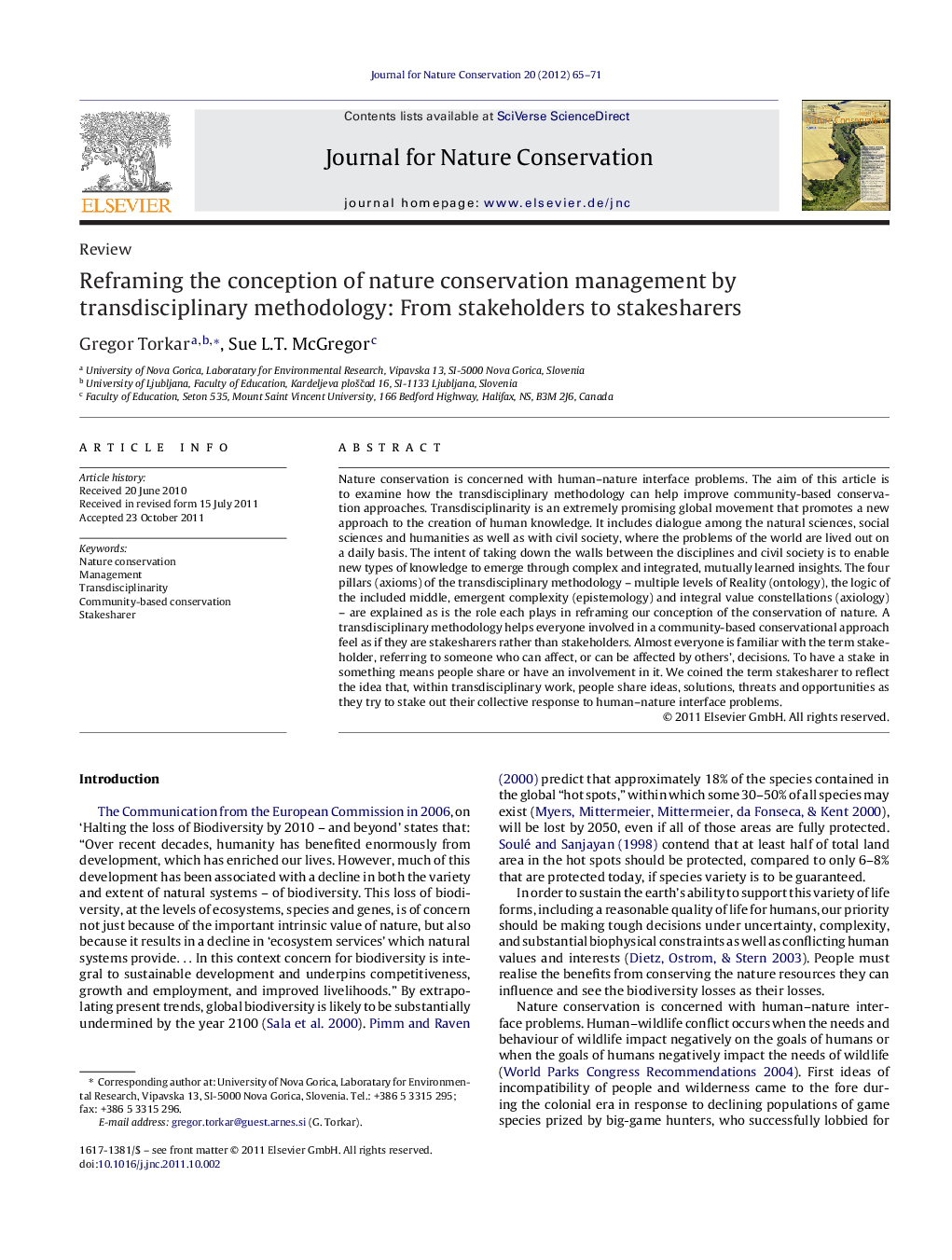| Article ID | Journal | Published Year | Pages | File Type |
|---|---|---|---|---|
| 4399971 | Journal for Nature Conservation | 2012 | 7 Pages |
Nature conservation is concerned with human–nature interface problems. The aim of this article is to examine how the transdisciplinary methodology can help improve community-based conservation approaches. Transdisciplinarity is an extremely promising global movement that promotes a new approach to the creation of human knowledge. It includes dialogue among the natural sciences, social sciences and humanities as well as with civil society, where the problems of the world are lived out on a daily basis. The intent of taking down the walls between the disciplines and civil society is to enable new types of knowledge to emerge through complex and integrated, mutually learned insights. The four pillars (axioms) of the transdisciplinary methodology – multiple levels of Reality (ontology), the logic of the included middle, emergent complexity (epistemology) and integral value constellations (axiology) – are explained as is the role each plays in reframing our conception of the conservation of nature. A transdisciplinary methodology helps everyone involved in a community-based conservational approach feel as if they are stakesharers rather than stakeholders. Almost everyone is familiar with the term stakeholder, referring to someone who can affect, or can be affected by others’, decisions. To have a stake in something means people share or have an involvement in it. We coined the term stakesharer to reflect the idea that, within transdisciplinary work, people share ideas, solutions, threats and opportunities as they try to stake out their collective response to human–nature interface problems.
